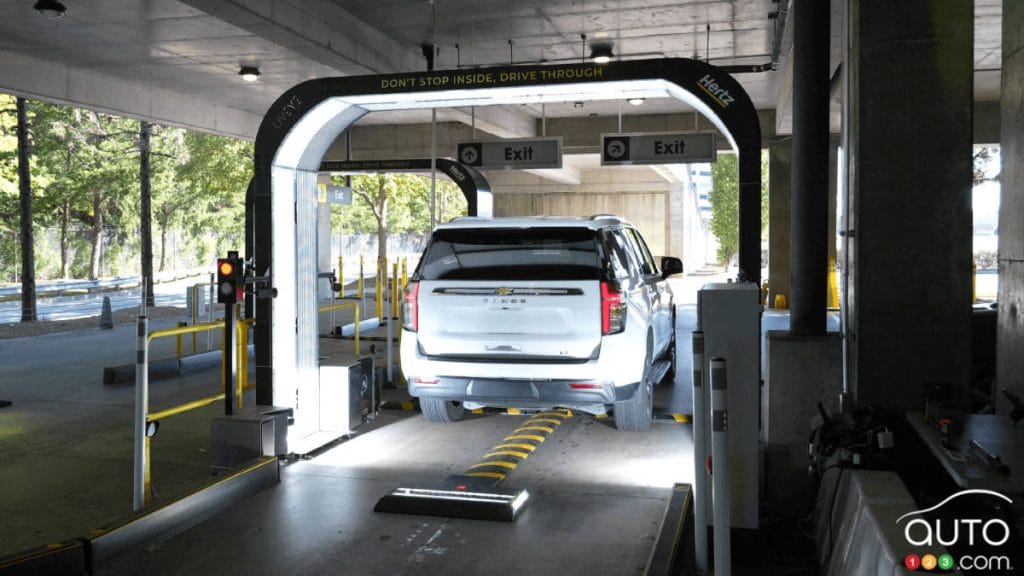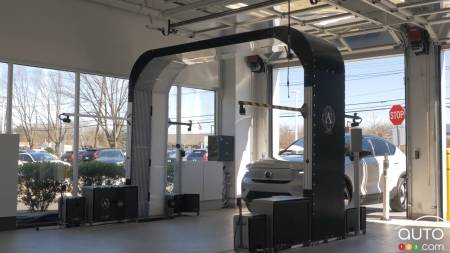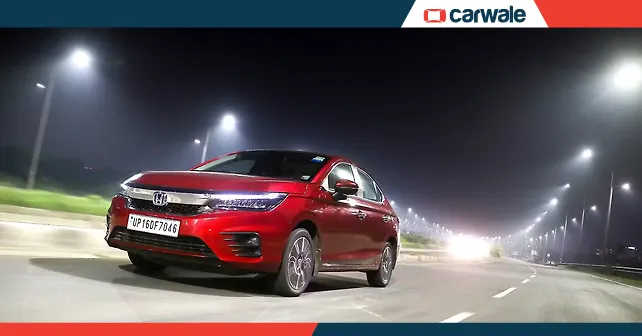
We’re still only starting to see the extent to which Artificial Intelligence (AI) will change our lives – sometimes for the better, sometimes for the worse. When it’s there to support us, it’s hard to be against it.
Car rental company Hertz is putting AI to work with a system designed to detect damage on rental vehicles returned by customers.
Hertz’ AI-assisted system
Rental cars are scanned by a machine before rental, but especially on their return. Their conditions before and after can then be compared to determine if any damage was incurred during the rental period.
As a customer, it can be stressful to think about, but at the same time, it can also be reassuring. You can’t be accused of damage that was already present and might have been caused by another user.
Hertz says it wants to make its process surrounding damage and claims more precise and transparent.
Hertz is using scanner technology as part of a partnership with Israeli firm UVeye. The goal is to install scanners in about 100 U.S. airport rental locations by the end of the year. The first systems have already been implemented in Atlanta.

|
The technology uses cameras and machine learning algorithms to meticulously scan the vehicle’s body, windows, tires and chassis to detect damage and issues. The scanners replace manual inspections, and Hertz states they improve the “frequency, accuracy, and efficiency” of the inspection process.
The Drive media outlet, however, recounted the experience of a customer who ended up with a $440 USD bill for an approximately one-inch scratch on a rim of the Volkswagen they had rented; that included $250 for the repair, $125 in processing fees and $65 in administrative fees.
The question that arises is whether part of the fees requested is there to cover the cost of the technology. In other words, would the repair costs have been the same with a human inspection?
A Hertz spokesperson shared the following statement: “The vast majority of rentals are incident-free. When damage does occur, our goal is to enhance the rental experience by bringing greater transparency, precision, and speed to the process. Digital vehicle inspections help deliver on that with clear, detailed documentation that is delivered more quickly, as well as a more technology-enabled resolution process.”
Which is a lot of words that don’t really say much.
Adjustments will certainly be made to the process and methods. Customers also have the right to expect transparency from the company regarding fees.
One thing is certain: the technology seems interesting, and if you return your vehicle without having added any damage, you won’t be charged for repairs with this new system.








